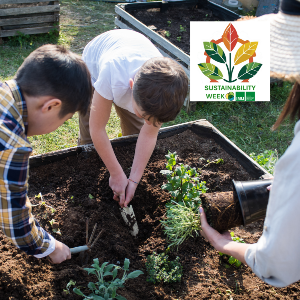
Under the motto "ESD – Shaping Futures," experts covering a broad spectrum from school and university to non-formal education discuss the goals, didactic concepts, and perspectives of education for sustainable development.
The event will be opened by Prof. Dr. Jochen Kuhn, Vice President for Innovation in Teaching and Teacher Training at Ludwig Maximilian University in Munich.
Keynote: Prof. Dr. Gerhard de Haan ( Institut Futur, Freie Universität Berlin)
Panel guests: Prof. Dr. Gerhard de Haan, Prof. Dr. Sarah Gaubitz (University of Hildesheim), Steffi Kreuzinger (Ökoprojekt MobilSpiel e.V. Munich), Prof. Dr. Markus Vogt ( LMU Munich)
Moderator: Lea Antony (LMU Munich)
Prof. Dr. Gerhard de Haan (Institut Futur, Freie Universität Berlin)
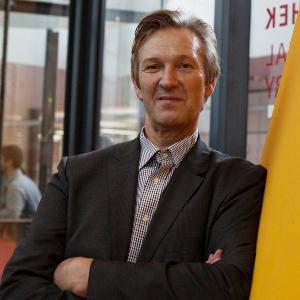
© Eva Häberle
Gerhard de Haan studied education, psychology, and sociology at the Free University of Berlin. He earned his doctorate with a thesis on "Nature and Education" and his habilitation with a thesis on "Time in Education." After a visiting professorship in Neubrandenburg (Mecklenburg-Western Pomerania), he has been a professor at the Free University of Berlin since 1991. Since 2011, his professorship has been titled: Professor for Future and Education Research. His research focuses on: futurology, the knowledge society, innovation research, and sustainable development.
Prof. Dr. Sarah Gaubitz (Uni Hildesheim)
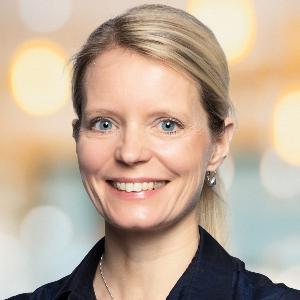
© info@michaelstange.de
"Children are confronted in their everyday lives with the consequences of exceeding planetary boundaries, such as heat waves and biodiversity loss. Accordingly, part of my research focuses on how teachers implement education for sustainable development in science classes and what ideas and values students have with regard to sustainability issues."
For Prof. Gaubitz, sustainability in teaching means promoting specific skills among students in her field of work at the Institute for Primary School Didactics and General Studies.
Her goal is to prepare students as future teachers to successfully implement education for sustainable development. To do this, they must be able to initiate participatory, creative and critical thinking and action processes in their learners in the context of education for sustainable development. In doing so, they should not only act as teachers or learning guides, but also see themselves as lifelong learners.
Institut für Grundschuldidaktik & Sachunterricht (Uni Hildesheim)
Steffi Kreuzinger (Ökoprojekt MobilSpiel e.V. München)
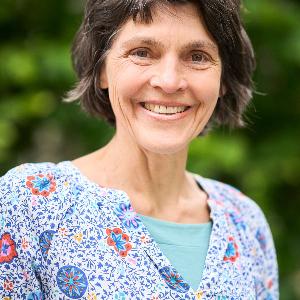
© Severin Vogl
"Sustainability and education for sustainable development require the participation of civil society actors with the opportunity to organise encounters, exchanges, collaborations and joint actions"
Steffi Kreuzinger is a special education teacher with an MA and has been with Ökoprojekt MobilSpiel e.V. in Munich since 1995, where she has been the educational director since 2015. Her work focuses on designing and supporting projects and processes for education for sustainable development in educational institutions, designing and implementing training and further education programmes for multipliers, and coordinating and networking ESD actors in and around Munich.
Prof. Dr. Markus Vogt (LMU München)
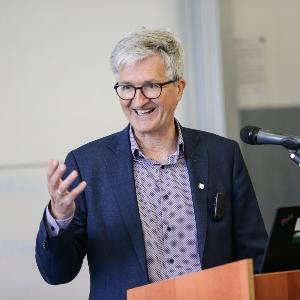
© Valerio Agolino Fotograf
"What makes education for sustainability so special and methodologically challenging is that it has enormous ethical demands. Today, education for sustainability needs a stronger political dimension so that we are not frustrated by the fact that individuals are making an effort but little is changing because the social conditions are not right."
Markus Vogt has been Professor of Christian Social Ethics at the Catholic Faculty of Theology at Ludwig Maximilian University in Munich since 2007. He studied theology and philosophy in Munich, Jerusalem and Lucerne. His research focuses on the theological and social-philosophical foundations of ethics, environmental ethics/sustainability, economic ethics/theories of justice and political ethics/peace ethics. Publications on the subject of sustainability include: Christian Environmental Ethics (Freiburg 2021; second edition 2022, English 2023; 800 pages); The Principle of Sustainability (3rd edition 2013; 500 pages); Resilience: An Analysis Tool for Social Transformations? (ed.: 2017).
